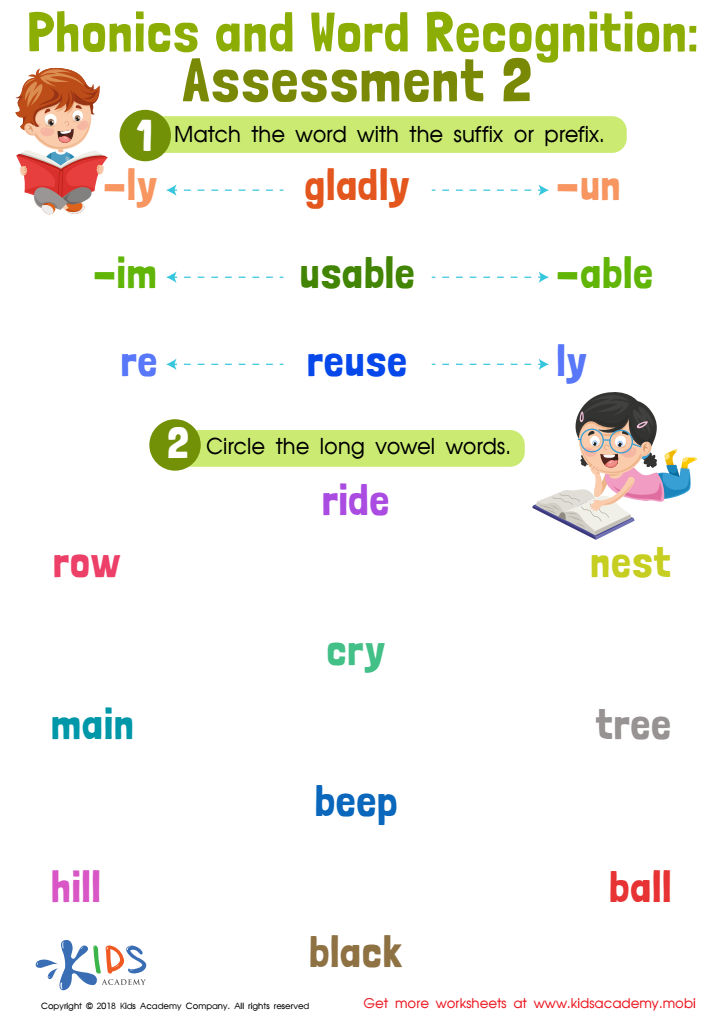Phonics worksheets activities for Ages 8-9
5 filtered results
-
From - To


Phonics and Word Recognition: Assessment 3 Worksheet


Phonics and Word Recognition: Assessment 1 Worksheet


Phonics and Word Recognition: Assessment 1 Worksheet


Phonics and Word Recognition: Assessment 2 Worksheet


Phonics and Word Recognition: Assessment 2
Phonics worksheets activities are an invaluable tool in the journey of learning to read and write. These engaging and interactive activities are designed to reinforce the relationship between letters and sounds, laying a strong foundation for literacy in learners of all ages. The effectiveness of phonics worksheets activities lies in their ability to break down the complex system of the English language into manageable, bite-sized pieces, making the daunting task of learning to read more accessible and fun.
One of the primary reasons phonics worksheets activities are so useful is that they cater to various learning styles. Whether a learner is visual, auditory, or kinesthetic, there's a phonics worksheet designed to meet their needs. For visual learners, colorful worksheets with pictures and letters help in associating sounds with symbols. Auditory learners benefit from repeating the sounds aloud as they work through the worksheets, while kinesthetic learners can engage in tracing and writing exercises, solidifying their understanding through movement.
Moreover, phonics worksheets activities provide structured practice. Learning phonics isn’t just about recognizing sounds; it's about applying these sounds to read and spell words correctly. Through consistent practice with these worksheets, students can gradually increase their phonics knowledge, allowing for a smoother transition from decoding words to fluent reading and writing. This structured approach ensures that no essential elements of phonics are overlooked, ensuring comprehensive learning.
Additionally, phonics worksheets activities offer the flexibility to cater to individual learning paces. Every learner grasps phonics at their own speed, and these worksheets can be easily adapted to suit individual needs, providing extra support for those who need it and advanced challenges for quick learners. This personalization fosters a positive learning environment, where each student can thrive without feeling rushed or held back.
In conclusion, phonics worksheets activities are a cornerstone in building literacy skills. By engaging students in varied, structured, and adaptable exercises, these activities not only make learning phonics enjoyable but also highly effective. Their role in developing confident readers and writers cannot be underestimated, making them an essential resource in any educational setting.
 Assign to the classroom
Assign to the classroom












